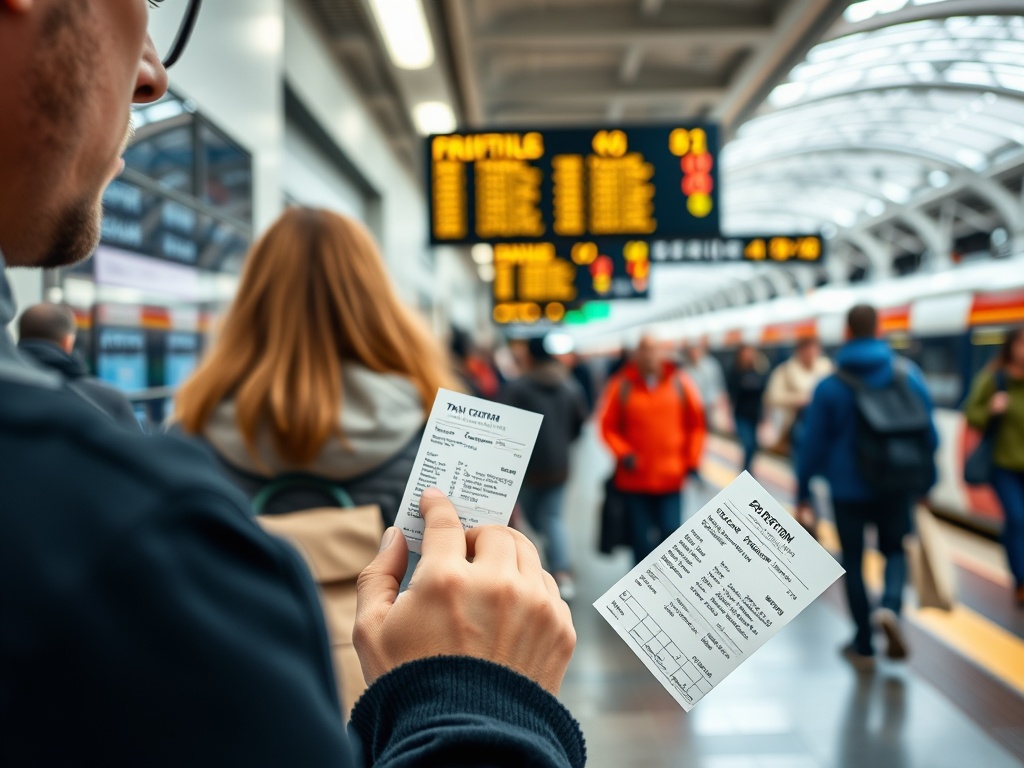Experts Critique Great British Railways Consultation

The recent consultation regarding Great British Railways (GBR) has been labeled a “waste of time” by industry experts, who argue that it has left passengers in a state of “limbo” without any real improvements to train fares, as reported by The i Paper. This government initiative, launched on Tuesday, aims to implement a significant overhaul of Britain’s railway system, introducing a public sector entity, GBR, that will oversee rail infrastructure and train operations.
According to a former rail minister, the proposals for GBR have been in the pipeline since the previous administration, yet the prolonged delays have left passengers uncertain about the future. Railway operators have expressed concern, stating that there remain “big questions” regarding how these plans will enhance performance for passengers and reduce the financial burden on taxpayers.
The Department for Transport has announced that a new independent watchdog will be established, equipped with the authority to set standards on vital issues such as journey information and passenger assistance. This watchdog will also have the power to refer cases of poor performance to a regulator for appropriate enforcement action. Additionally, the consultation aims to grant devolved leaders greater influence over the services that directly impact their localities.
Transport Secretary Heidi Alexander emphasized the urgency of these reforms, stating, “Passengers have endured unreliable rail services for far too long. This landmark reform will eradicate decades of failures, establishing a Great British Railways that passengers can depend on.”
However, Norman Baker, a former rail minister and Liberal Democrat MP, criticized the eight-week consultation, asserting it is “unnecessary, as we already know what needs to be done.” He commented, “It feels like a waste of time; let’s just move forward with the plans.” Baker pointed out that consultations are often initiated by governments to create the illusion of action while, in reality, they may be stalling progress.
He further noted, “The concept of GBR has been on the table for quite some time, even before the pandemic. The transition team was established by the previous government and has been in a state of stagnation ever since. There has been a general political consensus on the framework of GBR, with minimal differences among parties. The industry is unified in its desire to proceed without further delays.” Baker also suggested that the government appears to be using this consultation as a means to postpone action due to financial constraints.
The Campaign for Better Transport has expressed its support for the consultation and is actively contributing to it. Michael Solomon Williams, head of campaigns for the organization, stated, “It is encouraging that the government is seeking input on rail reform. Given the scale of the issue, it is essential that they listen to the public and to civil society organizations like ours.” Nonetheless, he conveyed concerns about the potential delay in presenting the bill to Parliament due to the consultation process.
Andy Bagnall, chief executive of Rail Partners, acknowledged that the consultation marks the beginning of addressing fundamental questions about how the government intends to enhance railway performance for passengers while alleviating taxpayer burdens. Baker pointed out that much of the railway system is already under public control, with Network Rail having been publicly owned since 2014, as a result of decisions made during the Labour-Liberal Democrat coalition government. Moreover, four major English networks are currently managed by the Department for Transport.
Services operated by South Western Railway, which runs out of London’s Waterloo station, are slated to be the first to transition to public ownership in May under the new Passenger Railway Services (Public Ownership) Act. This legislation aims to bring all train operators in England under public control, potentially saving taxpayers up to £150 million annually in fees to private companies. Despite the existence of private operators, Baker argued that they are effectively nationalized due to central oversight.
Baker questioned the substantial changes that the new architecture would bring, stating, “In theory, merging track and freight is beneficial, but that integration is already occurring to a considerable extent. Therefore, there seems to be an element of pretension in claiming that this will lead to significant changes when, in reality, it may not.” He emphasized that the underlying issues within the railway system will not be resolved merely through structural changes.
He highlighted a widespread agreement that the ticketing system is outdated and needs modernization, as well as a consensus on the necessity of keeping fares affordable rather than subjecting passengers to continual price hikes. From a consumer standpoint, Baker expressed skepticism that GBR would lead to lower rail fares or any significant price reductions.
Williams echoed these concerns, stating that while integrating track and train operations could be beneficial, there is no assurance that it will result in lower fares for the public. “Our research indicates that affordable fares are a top priority for the public, and we must ensure that any reforms positively impact accessibility to train travel,” he added.
Transport Secretary Heidi Alexander clarified the fiscal challenges ahead, telling the BBC, “We have inherited a difficult situation regarding fares. Currently, we provide approximately £2 billion annually in public subsidies to operate the trains, in addition to substantial grants to Network Rail for infrastructure maintenance. I wish I could assure everyone that rail fares will decrease because I understand that fare increases are deeply unpopular.”




